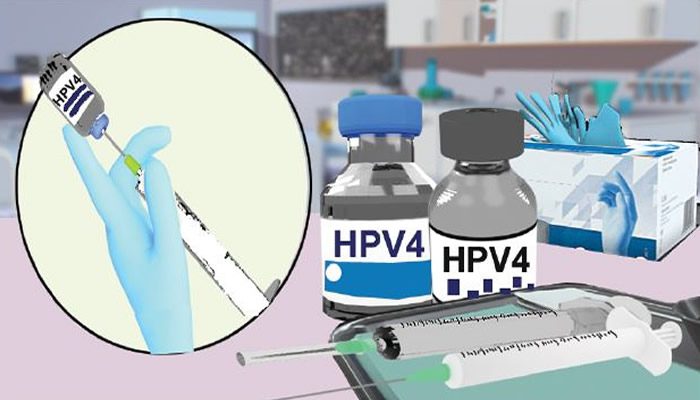Namibia has achieved a significant milestone by being the first African country and the first high-burden country globally to move towards stopping the passing of HIV and viral hepatitis B from mothers to their children.
The African Region Office of the World Health Organisation disclosed this information on Monday.
WHO stated that Eastern and Southern Africa account for over half of the world’s HIV cases, and Africa is responsible for two-thirds of new hepatitis B infections worldwide.
It also mentioned that in Namibia, there are over 200,000 people living with HIV, with new infections affecting females disproportionately.
“There is progress. Globally, 2.5 million children have been protected from getting HIV from their mothers since 2010, with 28,000 of them in Namibia. Almost all pregnant women in Namibia have access to HIV testing, and treatment has led to a 70% decrease in the passing of HIV from mothers to children over the past 20 years. In 2022, only four percent of babies born to mothers with HIV acquired the virus.
“Nearly 80% of infants in Namibia received the hepatitis B vaccine on time, which is an important measure of success in the effort to stop this disease,” the global health organization reported.
It mentioned that Namibia has combined primary health care with antenatal, child health, and sexual and reproductive health services. The government has also committed sufficient domestic funding to national health programs, providing widely available, high-quality, and free clinical services and support.
Based on specific criteria, Namibia was awarded “silver tier” status by the WHO for making progress in reducing hepatitis B, and “bronze tier” for progress in dealing with HIV.
Namibia’s accomplishment is the result of a coordinated effort to prevent the transmission of hepatitis B, HIV, and syphilis.
The WHO Regional Director for Africa, Dr. Matshidiso Moeti, described Namibia's achievement as a groundbreaking milestone that showcases the life-saving potential of dedicated political leadership and effective implementation of public health priorities. “With concerted efforts, we can speed up progress towards ending the passing of HIV, hepatitis B, and syphilis from mothers to their children – a triple elimination goal,” she said.
The validation process, conducted by WHO in partnership with UNICEF, UNAIDS, and UNFPA, evaluates data and sets standards for eliminating diseases.
One of the factors considered by WHO when certifying a country with silver tier status is the administration of the hepatitis B vaccine to 50% or more of newborns. Bronze certification is given to countries that have reduced the passing of HIV from mothers to children to less than 1%.
“In many countries, we are failing our children by not providing them with the same treatment as we do for their mothers and other adults,” said Anne Githuku-Shongwe, the UNAIDS Regional Director for East and Southern Africa. “Namibia has fought against this injustice, and we are proud to celebrate their immense effort to ensure that no child is left behind. They are a shining example for the entire region.”
“Namibia has achieved this goal by implementing a comprehensive approach to the HIV response since the beginning,” stated Etleva Kadilli, the UNICEF Regional Director for Eastern and Southern Africa. “Instead of addressing HIV alone as a single disease, the country has integrated it into a broader health and development agenda, including maternal and child health for all. Namibia has provided assistance to mothers and their children, even in the most remote areas.”
The Triple Elimination Initiative from WHO aims to protect the health of mothers and children and uphold the rights of every child to be born free from the burden of these viruses.
The initiative supports ending the vertical transmission of HIV, syphilis, and hepatitis B virus, which are widespread in low- and middle-income countries. It encourages countries to combine services in a person-centered approach to enhance health outcomes for mothers and children.
In recent years, WHO has acknowledged the elimination of MTCT of HIV in Cuba, Anguilla, Antigua and Barbuda, Bermuda, Cayman Islands, Montserrat, St. Kitts and Nevis, Thailand, Belarus, Armenia, and the Republic of Moldova.
However, Nigeria has the highest number of children born with HIV globally.
Countries with more than two per cent of pregnant women living with the virus are considered high-burden HIV countries.
According to the 2021 viral hepatitis scorecard from WHO, an estimated 998,000 Nigerian children under five years old are chronic carriers of hepatitis B antigen. The scorecard also revealed that at least 11,679,000 other Nigerians are chronic carriers of viral hepatitis B.
Hepatitis B virus is most commonly transmitted from mother to child during birth and delivery, as well as through contact with blood or other body fluids during sex with an infected partner, unsafe injections, or exposure to sharp instruments.
In December 2021, Botswana became the first high-burden country to be certified by WHO for achieving an important milestone in eliminating mother-to-child transmission of HIV.



